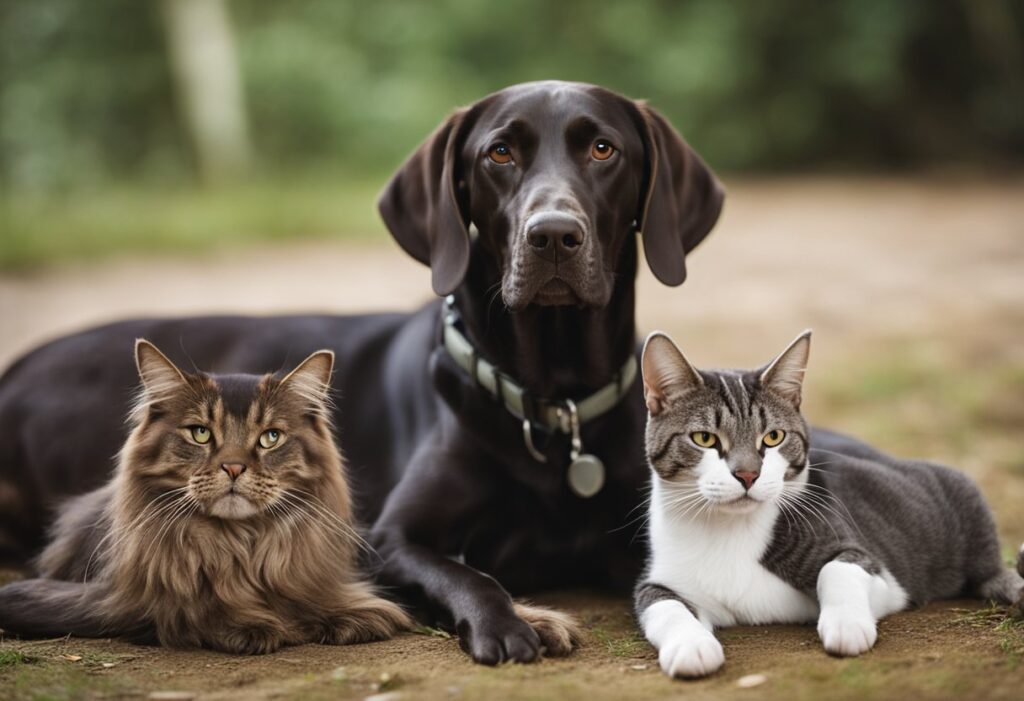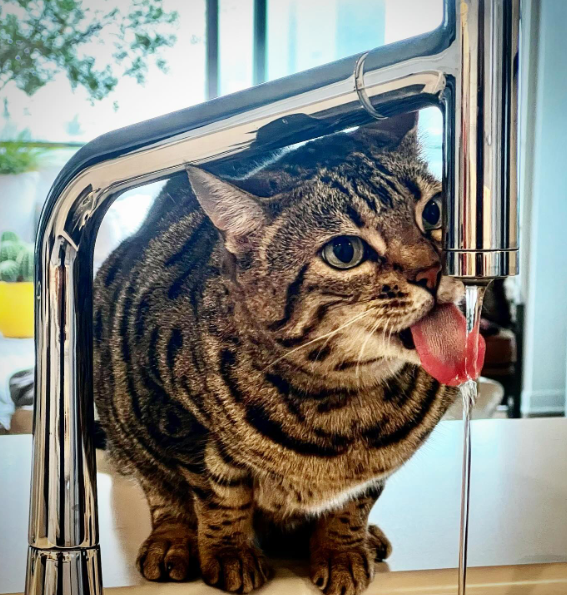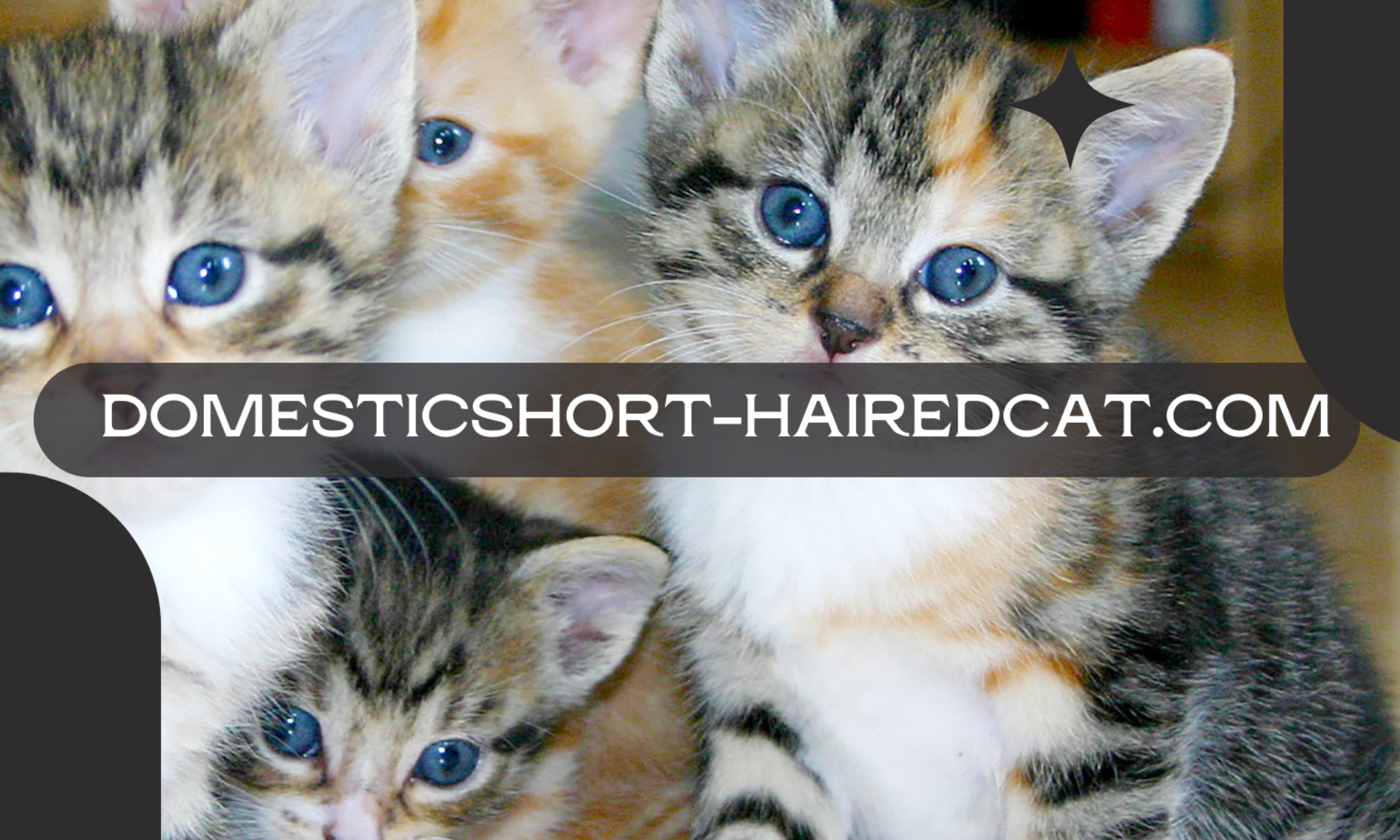While GSPs are known for their friendly nature, their hunting instincts may make it challenging for them to coexist with smaller animals like cats. In fact, never put a cat in a room with a German Shorthaired Pointer unless it’s been trained or it could kill the cat!

With proper training and socialization, it is possible for German Shorthaired Pointers to live peacefully with cats.
Please note that each dog and cat has a unique personality, and their interactions with each other will depend on their individual temperaments. I don’t mean to sound dire but please keep in mind that introducing cats and dogs (shc as GSPs) needs to be done carefully or could result in an injured pet, or worse yet, death of one.
Some GSPs may be more accepting of cats than others, while some cats may be more tolerant of dogs. Whatever the case, it’s crucial to introduce them gradually and supervise their interactions to ensure their safety.
If you’re considering adding a German Shorthaired Pointer to your family and already have a cat, it’s essential to do your research and prepare accordingly. In this article, I’ll explore the topic of whether German Shorthaired Pointers are good with cats and provide tips on how to introduce them to each other.
Is there a risk of a German Shorthaired Pointer harming a cat?

As with any breed, there is always a risk of a German Shorthaired Pointer harming a cat. However, it is important to note that this risk can be minimized with proper training and socialization.
German Shorthaired Pointers have a strong prey drive, which means they may be more likely to chase and potentially harm a cat. However, with proper training and socialization, this instinct can be redirected towards more appropriate behaviors.
First, introduce your German Shorthaired Pointer to cats at a young age and supervise their interactions. This will allow them to learn appropriate behavior around cats and reduce the risk of any harm coming to the cat.
Also, reinforce positive behavior and redirect attention when prey drive is exhibited towards the cat. This can be done through training techniques such as positive reinforcement and distraction.
Training and Socialization
Training and socialization are essential for any dog, but especially for a high-energy breed like the German Shorthaired Pointer.
Positive reinforcement-based obedience training can help your GSP learn to control their impulses and focus their energy. Socialization with other dogs and small animals, including cats, can help your GSP learn appropriate behavior and body language cues.
Managing Prey Drive and Interactions with Cats

German Shorthaired Pointers have a strong prey drive, which means they may be tempted to chase and hunt small animals like cats.
However, with proper training and management, it is possible for GSPs to coexist peacefully with cats. Leash training and control are essential for managing your GSP’s prey drive and interactions with cats. Supervision is also critical, especially during the introduction period and when your GSP is still learning to control their impulses.
How do German Shorthaired Pointers typically behave around cats?
As a breed, German Shorthaired Pointers are known to be friendly and sociable dogs but it is not uncommon for some German Shorthaired Pointers to have a high prey drive.
It is important to note that a dog’s behavior around cats can be influenced by factors such as early socialization, training, and individual personality.
Are there any specific training methods to ensure a German Shorthaired Pointer is cat-friendly?
Training a German Shorthaired Pointer to be cat-friendly involves teaching the dog to associate positive experiences with the presence of cats. Some training methods include:
- Keep the dog on a leash during the initial introduction.
- Rewarding the dog for calm behavior around cats.
- Gradually increasing exposure to cats in a controlled environment.
- Teaching the dog basic obedience commands such as “leave it” and “stay.”
What traits of German Shorthaired Pointers affect their compatibility with cats?
German Shorthaired Pointers are energetic and active dogs that require plenty of exercise and mental stimulation.
A lack of exercise and stimulation can lead to boredom and destructive behavior, which can negatively impact their compatibility with cats. Additionally, German Shorthaired Pointers with a high prey drive may be less compatible with cats.
